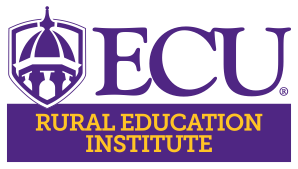Higher Education Access and Success of Rural Students
Ensuring College-going Advice is Relevant to Rural Populations
DOI:
https://doi.org/10.3776/tpre.2022.v12n1p133-137Keywords:
college access, college success, rural education, community-based organizationsAbstract
Despite the inclusion of “rural” in the title, Rural America’s Pathways to College and Career: Steps for Student Success and School Improvement covers content more specific to a particular college access organization than it does direct guidance on rural student achievement. In this review, the authors discuss areas of academia and college access where content of the book may be applied practically to some rural and other populations as well as caution readers to take a critical approach to claims made by author Rick Dalton. Authors conclude that although areas of the book offer practical advice for increasing access to college and career to underrepresented student populations in general, including rural students, there are deficit perspectives on rural people, places, and education presented that warrant more rural-relevant and strengths-based examples in order to more effectively contribute to the current literature on rural education.
References
Ardoin, S. (2018). College aspirations and access in working-class rural communities: The mixed signals, challenges, and new language first-generation students encounter. Lexington Books.
Belkin, D. (2017, December 1). For colleges, a rural reckoning. Wall Street Journal. https://www.wsj.com/articles/for-colleges-a-rural-reckoning-1512159888.
Brilliant Pathways (2021). Where we work. CFES Brilliant Pathways. https://brilliantpathways.org/where-we-work/
Byun, S., Meece, J. L., & Agger, C. A. (2017). Predictors of college attendance patterns of rural youth. Research in Higher Education, 58(8), 817–842. https://doi.org/10.1007/s11162-017-9449-z
Chambers, C. R. (2020). Let's give ‘em something to talk about: Spurring college conversations among rural students, schools, and families. In H. C. Green, B. S. Zugelder, & J. C. Manner (Eds.), Handbook of research on leadership and advocacy for children and families in rural poverty (pp. 279–294). IGI Global. https://doi.org/10.4018/978-1-7998-2787-0.ch013
Dalton, R. (2021). Rural America’s pathways to college and career: Steps for student success and school improvement. Routledge. https://doi.org/10.4324/9781003080268
Koricich, A., Chen, X., & Hughes, R. P. (2018). Understanding the effects of rurality and socioeconomic status on college attendance and institutional choice in the United States. Review of Higher Education, 41(2), 281–305. https://doi.org/10.1353/rhe.2018.0004
Means, D. R., Clayton, A. B., Conzelmann, J. G., Baynes, P., & Umbach, P. D. (2016). Bounded aspirations: Rural, African-American high school students and college access. Review of Higher Education, 39(4), 543–569. https://doi.org/10.1353/rhe.2016.0035
Means, D. R. (2019). Crucial support, vital aspirations: The college and career aspirations of rural black and Latinx middle school students in a community-and youth-based leadership program. Journal of Research in Rural Education, 35(1), 1–14. https://jrre.psu.edu/sites/default/files/2019-06/35-1.pdf
Marcus, J., & Krupnick, M. (2017, September 27). The rural higher-education crisis. The Atlantic. https://www.theatlantic.com/education/archive/2017/09/the-rural-higher- education-crisis/541188/
McNamee, T. (2019). Social capital in the rural United States and its impact on educational attainment. In P. George & R. Bartee (Eds.), Contemporary perspectives on social capital in educational contexts (pp. 201–220). Information Age Publishing, Inc.
National Student Clearinghouse (2020). High school benchmarks - 2020: National college progression rates. https://nscresearchcenter.org/high-school-benchmarks/
Pappano, L. (2017, January 31). Colleges discover the rural student. New York Times. https://www.nytimes.com/2017/01/31/education/edlife/colleges-discover-rural-student.html
Sansone V. A., Sparks C. S., & Cano-McCutcheon, P. (2020). Metro and non-metro variation in postsecondary enrollment: The role of race, ethnicity, and residential location in Texas, Journal of Critical Thought and Praxis 9(1), Article 6, 1–16. https://doi.org/10.31274/jctp.11013
Wells, R. S., Manly, C. A., Kommers, S., & Kimball, E. (2019). Narrowed gaps and persistent challenges: Examining rural-nonrural disparities in postsecondary outcomes over time. American Journal of Education 126, 1–31. https://doi.org/10.1086/705498
Additional Files
Published
Versions
- 2023-02-25 (3)
- 2022-06-27 (2)
How to Cite
Issue
Section
License
Copyright (c) 2022 Karen M. Ganss, Ty McNamee, Shadman Islem

This work is licensed under a Creative Commons Attribution-NonCommercial 4.0 International License.
Copyright Notice
Articles will be published using a Creative Commons Attribution Non-commercial Sharealike license. (For more information on this license, please visit the Creative Commons license page.) Please also note that the authors are explicitly granting permission for Academic Library Services to store a copy of the article in The ScholarShip, ECU's Institutional Repository under the terms of the current ScholarShip license. As a North Carolina agency, ECU contributes copies of all publications to the North Carolina State Archives.


